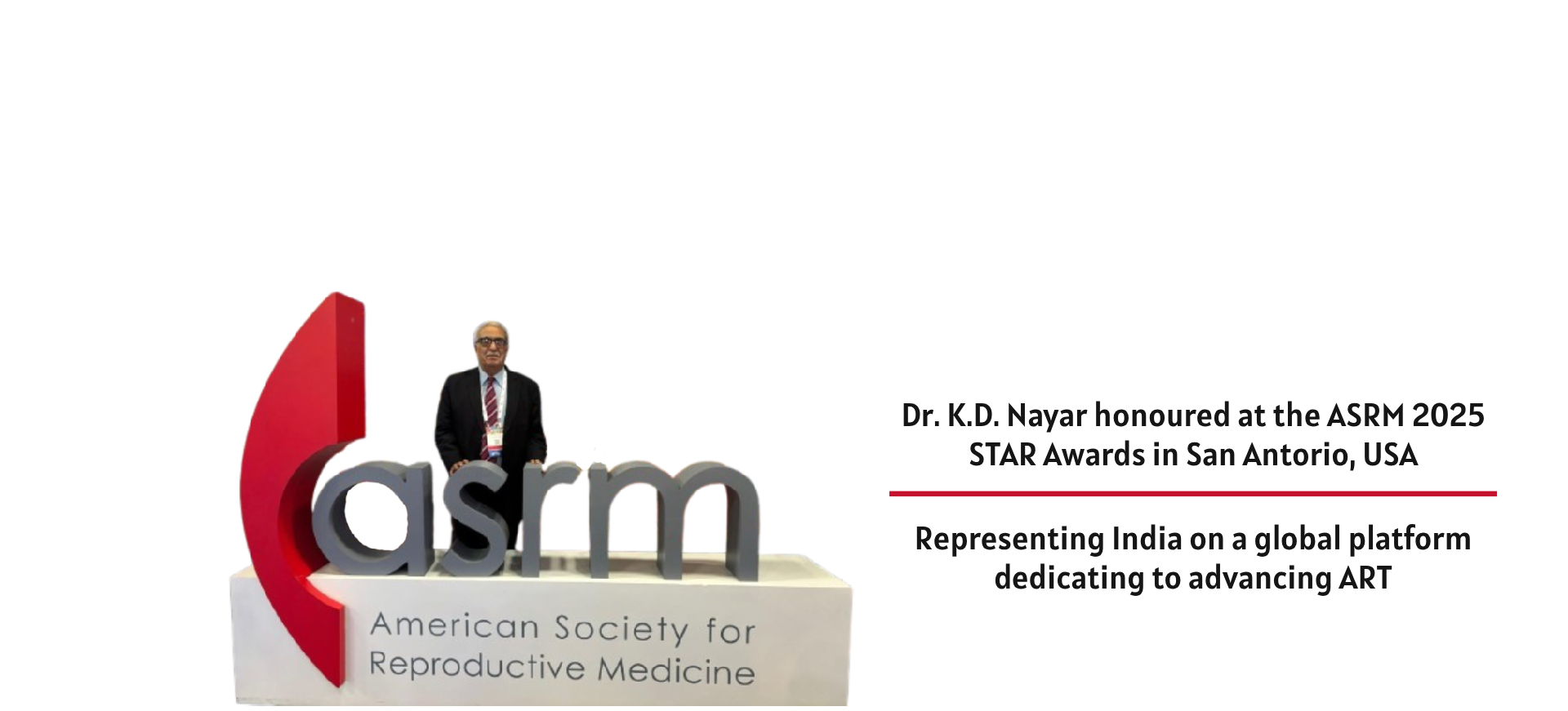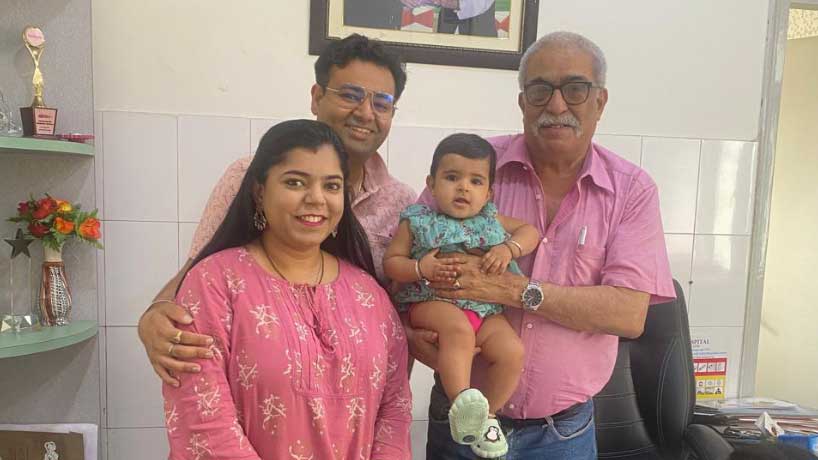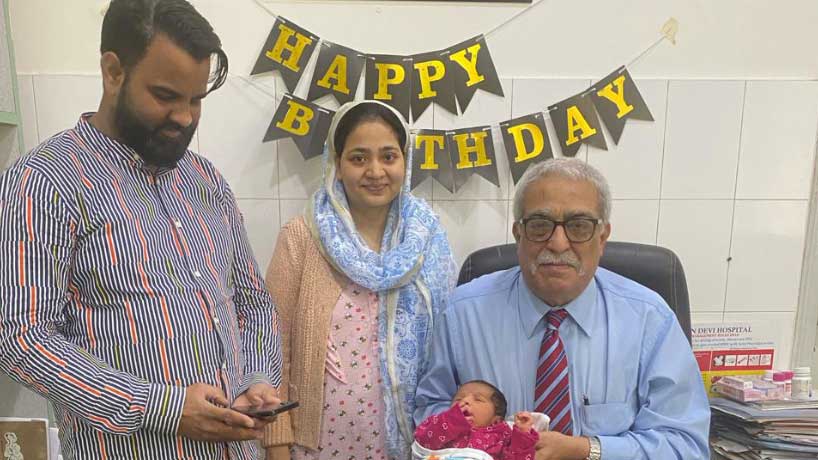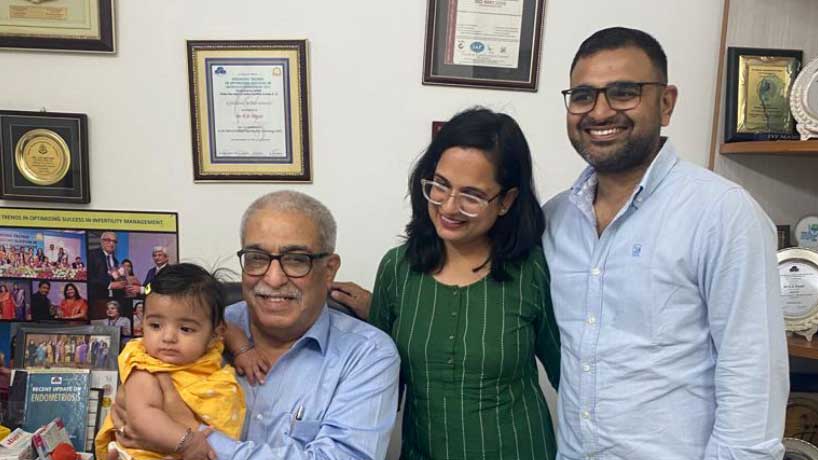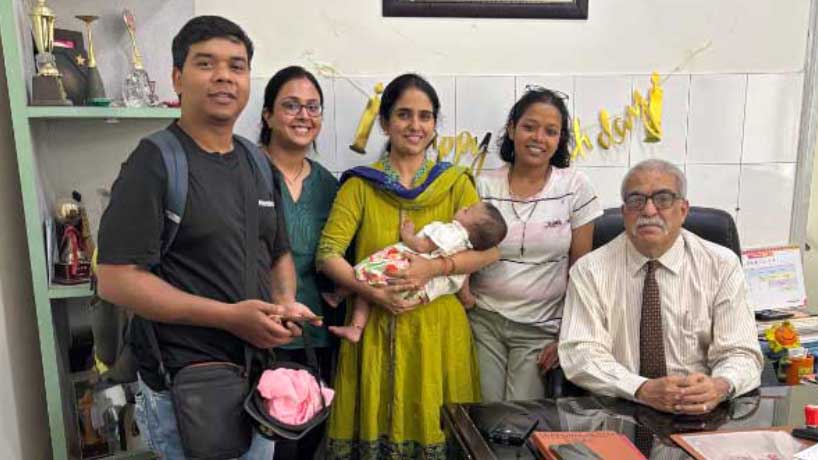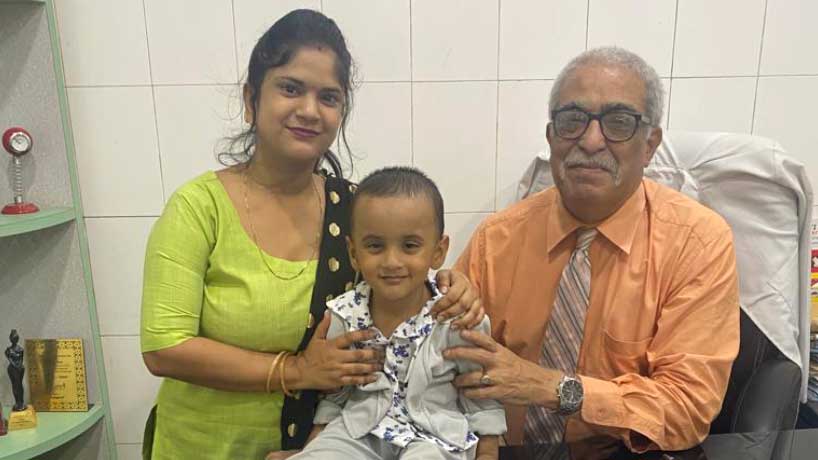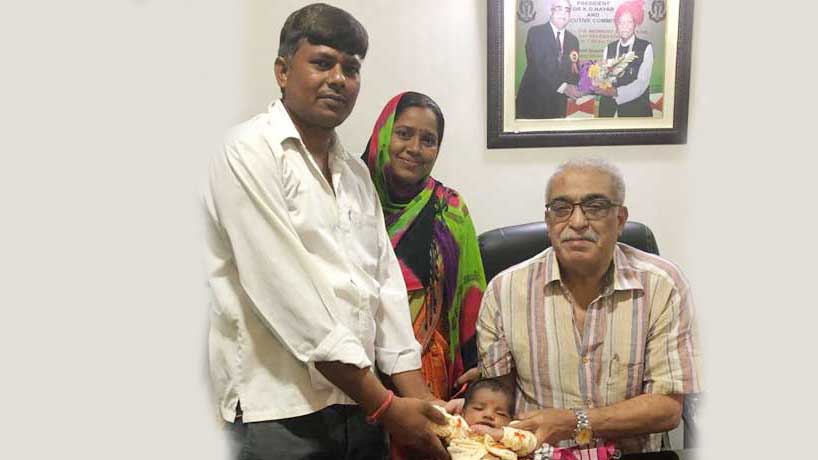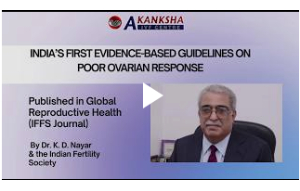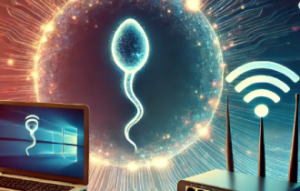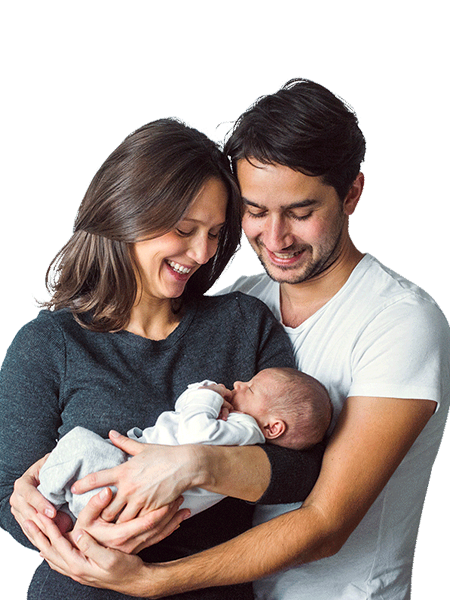
Couples
From fertility testing to treatment, we make parenthood possible.
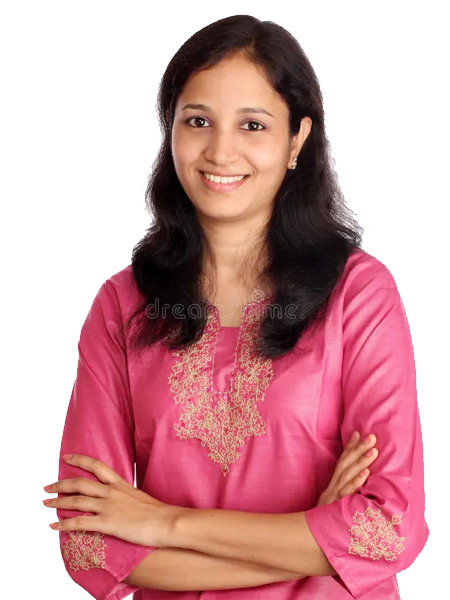
Single Women
Whether you want to preserve your fertility or become a single mom, we can help.

Oncofertility
Don’t let a cancer diagnosis stand in the way of your future family.
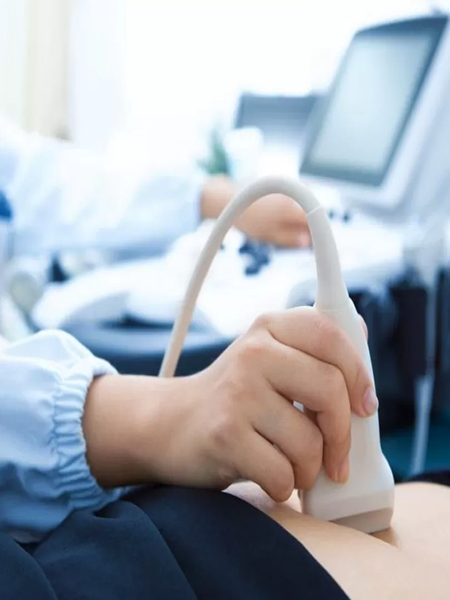
Patient Education
Empowering you with the information you need to start or grow your family.
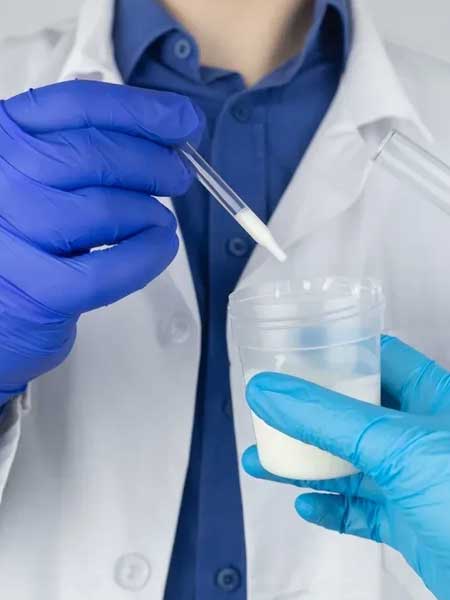
Third Party Reproduction
Donor Semen/ Donor Egg

Psychosocial Care
Offering emotional support, guidance and education to individuals and couples throughout the journey - from diagnosis to a successful outcome
Welcome to Akanksha IVF Centre
Your Trusted Partner in Fertility Care
Global Achievements of Dr. K.D. Nayar
Dr. K.D. Nayar has made outstanding contributions to the field of reproductive medicine, earning international recognition for his expertise and research. Through his active involvement with the European Journal of Obstetrics and Gynecology and global reproductive health initiatives, he has published numerous articles in leading international journals and presented groundbreaking work at conferences worldwide.
To explore his globally published research papers and articles, please click the button below.
About Akanksha IVF Centre
At Akanksha IVF Centre, we are committed to helping couples achieve their dream of parenthood through cutting-edge fertility treatments and Assisted Reproductive Technology (ART). Founded by Dr. K.D. Nayar, one of India’s foremost IVF specialists, our centre provides personalized care with advanced treatments, ensuring high success rates and compassionate support throughout your fertility journey.
Why Choose Akanksha IVF Centre?
Comprehensive Fertility Solutions
We offer a wide range of advanced ART procedures, including:
- IVF & ICSI
- Egg & Embryo Freezing
- PGT (Pre-implantation Genetic Testing)
- IVF with Egg & Sperm Donation
World-Class Facilities
Our fertility clinic is equipped with the latest technology, including Microfluidic Sperm Sorting (MFSS) and Time-Lapse Embryo Imaging, to maximize your chances of success.
Our Fertility Services Include
Meet Our Expert Team
Book Your Consultation Today
At Akanksha IVF Centre, we believe in providing the highest quality care at every step of your fertility journey. Whether you need IVF, ICSI, or other advanced reproductive treatments, we are here to help you take the first step toward parenthood.


IVF
Learn how in vitro fertilization, also known as IVF, can help patients become parents.

IUI
IUI is an effective fertility treatment for patients wanting to grow their family.

Egg Freezing
Freezing eggs now can help make parenthood possible later.

Donor and Surrogacy Services
Providing trusted fertility services for over three decades.

